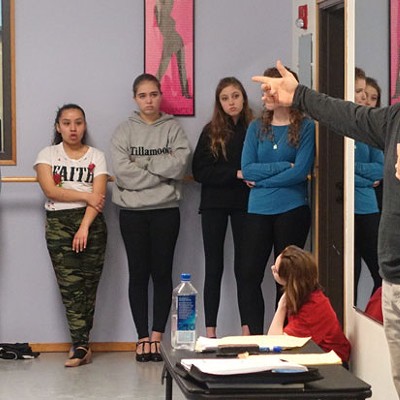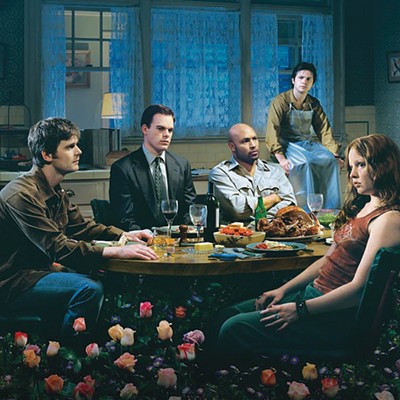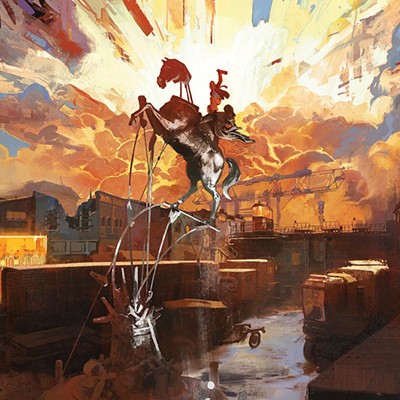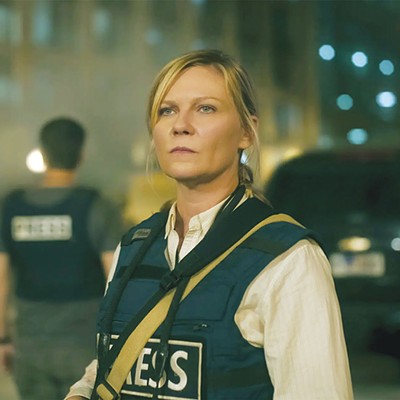Roger Ebert made me want to be a film critic because he loved movies as much as I did. More even.
Every time he sat down to watch a film, he wanted it to be incredible. That optimism was infectious, and even as his career moved into an internet era where film criticism is too often aimed at being the loudest, snarkiest voice in the room, Ebert never seemed jaded. He looked at each film objectively and without baggage; judging the film for what it was instead of what he wanted it to be.
In the film Life Itself, Ebert is shown as a man completely in control of his voice and who knew how to elucidate his opinion without ever coming across as condescending or pretentious and with an absolutely encyclopedic knowledge of whatever he was writing about. He initially wasn't even the film critic for the Chicago Sun-Times until his editor asked him to do it one day, apropos of nothing.
Across the way at the Chicago Tribune, Gene Siskel was making a name for himself as a film critic, creating an instant rivalry between the two men. When they finally came together for "Sneak Previews" on PBS, their almost consistently dissenting opinions led to the fireworks that kept them on television for decades to come.
Ray Solley, the executive director of Bend's Tower Theater, worked with Siskel and Ebert during the late '70s and early '80s, and witnessed those minds clashing first hand. "They were solitary workers," Solley tells me. "They didn't know how to communicate with somebody else. They knew how to drink and have a good time and party and run around in the Playboy mansion (in Gene's case), but they didn't know how to give and take. They were thinking, 'Why do I need this other guy? Why can't I do this myself?'"
The sections of Life Itself that focus on Ebert's volatile relationship with Siskel are some of its most powerful. Those conflicting personalities and tastes are what made "Sneak Previews" (and eventually "At The Movies") so entertaining. "Gene was younger than Roger, but Gene acted like the older brother," says Solley. "Gene was the first Simon Cowell. He never minced words, never was really pleasant, never gave anybody a whole lot of extra thanks. Roger was always telling dirty jokes, he was always making people laugh; a little more jolly and trying to make sure people were having a good time. At the end of it, if he got grumpy or if he didn't get his way, there would be tantrums, but not in a childish way."
While many film critics used their column inches to focus on the populist Hollywood productions, Ebert would always save some room for the independent films that he hoped would reach a larger audience. One of the films he brought mainstream attention to was the 1994 documentary Hoop Dreams. Ebert's glowing review of the film led to director Steve James continuing to make some of the best documentaries of the last 15 years, including Life Itself.
"I wouldn't have made this film as a thank you to Roger," James says. "Though I might have been tempted to. But if I had read Roger's memoir and not responded to it and felt like, 'You know, it's not that interesting,' or worse: 'Gee, I don't really like this guy,' I wouldn't have made the film. My goal in filmmaking is much like Roger's, which is to help you understand people, not sit in judgment of them."
That non-judgmental quality was especially evident in Ebert in the last years of his life when he lost the ability to speak, yet on his blog, did the most humane and beautiful writing of his career. Life Itself comes at Ebert not just as a culturally important critic, but as a fascinating and complicated man.
"I think my films often address social issues, but I don't think of them as issue oriented films. I think of them as stories and I think of them as portraits of people. I think in the case of this film, what hooked me wasn't that Roger was this hugely important critic (although that's the only reason a film like this would get made), but his personal life and the journey he went on," James says.
Life Itself is a beautiful film, not just as a documentary about Ebert, but in its humanism and its look into the last years of a man consumed with his passion for words and film. Here is a staggering fact: Ebert was a critic of film for half of the entire lifespan of the medium. That dedication to my favorite art form makes him my hero and hearing Steve James talk about the man makes me clutch even tighter to that respect and admiration.
"I tried to take the measure of him as a critic and why he's important and the contribution he made," says James. "But I'm as much or more interested (and certainly spend more time on) the life adventure that Roger Ebert had. I think that that really informed his criticism and it's why he ultimately named his book Life Itself and not My Life in Movies because, as he said, he was living inside a movie and he had no idea where it was going but he was enjoying the ride."
Life Itself
7 pm.
July 23
Tower Theatre, 835 NW Wall St.
$13. Tickets available at towertheatre.org
























